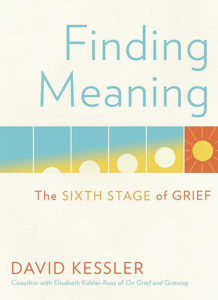Covid-19, Grief & Loss
 Are you going through Grief & Loss? Is it a new loss? With all of us coping with Covid for a year now, we have all experienced loss to some degree or another. Loss of gathering has impacted everyone.
Are you going through Grief & Loss? Is it a new loss? With all of us coping with Covid for a year now, we have all experienced loss to some degree or another. Loss of gathering has impacted everyone.
People going through the upheaval of grieving the loss of a loved one, brings along a very painful loss and naturally will have many lows of emotional reactions. Over 500,000 Americans have been lost to Covid. So many families have impacted.
Everyone’s grief response to loss is different and and if their has been previous loss than the current loss reaction is even more compounded. Each person’s grief is as unique as each individual.
If we are lucky to live long enough, all of us will go through the process of grieving the loss of someone who we love deeply at some point. It’s important to know our reactions to grief are normal for the loss we have endured.
There are 5 reactions to loss we can typically expect to be going through, when we go through the process of grieving. The 5th reaction to grief is acceptance.
Finding acceptance may be just having more good days than bad ones. As we begin to live again and enjoy our life, we often feel that in doing so, when we have lost someone, we are betraying our loved one.
We can never replace what has been lost, but we can make new connections, new meaningful relationships, new inter-dependencies.
Instead of denying our feelings, we listen to our needs; we move, we change, we grow, we evolve. We may start to reach out to others and become involved in their lives. We invest in our friendships and maybe develop new habits, and new normal schedules.
We begin to live again, but we cannot do so until we have given grief its time. If you feel up to it, talking about your loved one helps the grieving process. Processing through grief is especially helpful to work through the grief.
As a counselor I am happy to sit with people as they work through their grief and help them find meaningful way to go forward. It’s a privilege to be of service to people who are hurting.
A good book on Grief is
“On Grief and Grieving: Finding the Meaning of Grief Through the Five Stages of Loss”, written by Grief experts:
Elisabeth Kubler Ross and David Kessler.
P.S. The author David Kessler had mentioned to me that he wished they ( he and Elizabeth) had changed the word “stages” to “reactions” . Because the stages are not neatly packaged.
David Kessler can be found on Facebook as he continues his work in the area of grief. He has also written a new book this past year. Finding Meaning: The Sixth Stage of Grief which is a powerfully wise book.
I wish you well in whatever journey you are on, as our nation and world copes with managing a new normal.
~ Julie Morrell, MFT